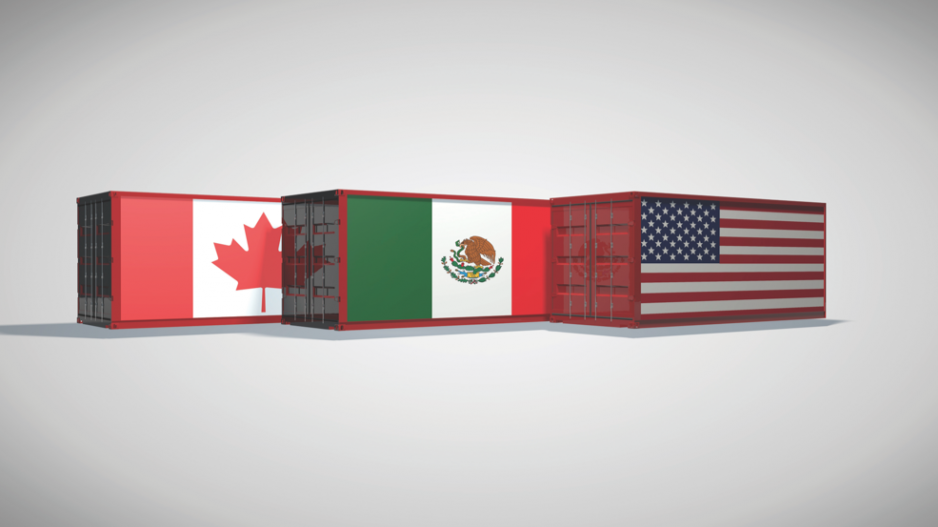Most Canadian businesses are not making emergency plans in preparation for the United States potentially pulling out of the North American Free Trade Agreement (NAFTA), according to a recent poll of 245 owners across the country.
The poll, conducted by professional services firm and consultancy BDO Canada LLP, is alarming, said one BDO analyst who is urging Canadian businesses to prepare for the possibility of losing NAFTA.
“About 75% of business leaders say the outcome of NAFTA will impact decision-making process, but only 15% feel that outcome will be positive for Canada,” said Dean Elliott, managing partner of BDO Canada’s Central Group. “So even though we don’t know where it’s going to end, it’s not good news in the minds of business leaders. So doing nothing doesn’t seem to me to be the right strategy.”
The latest round of NAFTA negotiations in Montreal took place in late January, with Canada and Mexico both anxious about Washington under the protectionist, Donald-Trump-led White House and potential changes to the decades-old free-trade pact.
But while that concern is rising, a December poll by BDO showed that 66% of Canadian business owners have no contingency plan for NAFTA’s potential demise, even though 86% believe Trump will either pull out of the deal or make changes that favour the United States.
“I think there’s some paralysis right now because we don’t know what the result is going to be,” Elliott said. “What are you planning for? That’s the biggest challenge.… And a lot of SMEs [small and medium-sized enterprises] have less capital and fewer people, so they probably have less capacity to plan and to think about these types of things. That makes it a challenge, but that doesn’t mean they shouldn’t think about this.”
The key research that SME owners should do, Elliott said, is to gauge how big a part NAFTA plays in their operations and bottom lines. Since NAFTA has been in place for more than two decades, many business owners have never operated outside of the agreement and are used to it as part of the normal business environment in Canada.
“Do they really understand the clauses in NAFTA their businesses rely on, that are adding to their business? That’s the first thing business owners have to look at.”
Elliott added that looking simply at a company’s direct suppliers or customers won’t reveal a complete picture of the possible effects of losing NAFTA.
“They should absolutely be looking at everything in their operations that involves crossing the border with the United States or to and from Mexico,” Elliott said. “Maybe you don’t have an American supplier, but you have a Canadian supplier that has American suppliers – something further down the supply chain, several steps removed from where you are, can still impact your business. You have to really understand the source of your products, and what would happen there if NAFTA ceases to exist.”
About 92% of respondents in the BDO poll said it’s time for Canada to strengthen trade with countries in Europe and Asia. Elliott said that while other markets present their own challenges, Canadian companies with existing relationships overseas should lean more heavily on those markets.
“If you were already doing business with Asia, you have relationships established, and it would seem intuitively more straightforward to focus on that market and increase trade in that direction,” he said. “Having those relationships is more than half the battle, I would say…. With Europe, there are likely more longer-term business relationships between companies that have been forged over the year, which makes an entry more straightforward. Certainly, this is not a market Canadians should be turning their backs on.”
There are other advantages provided by those markets, Elliott said. In Europe, Canada has the Comprehensive Economic and Trade Agreement provisionally applied since last September. And in Asia, Canada has a bilateral free-trade agreement with South Korea, as well as the recently reformed Trans-Pacific Partnership that includes Japan and which may come online as soon as later this year. But regardless of these markets, Canadian businesses should also look at new ways of doing business with the United States without NAFTA, Elliott said.
“I don’t think, even if NAFTA no longer exists, that would signal the beginning of the end in terms of our business relationship with the United States,” he said. “There are some thoughts and commentary that say Canada might be better off to revert to the prior agreements before NAFTA…. I don’t know if that’s the case, but the United States remains a giant market, and it’s right here.” •




